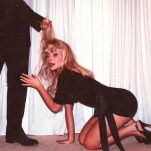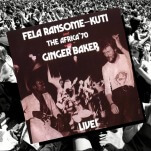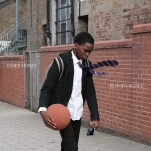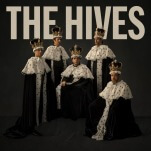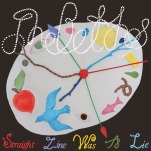Sabrina Carpenter Says the Quiet Parts Out Loud on Man’s Best Friend
The pop star’s Short n’ Sweet follow-up is as brainy as it is raunchy, with clever wordplay superseded only by inspired form.
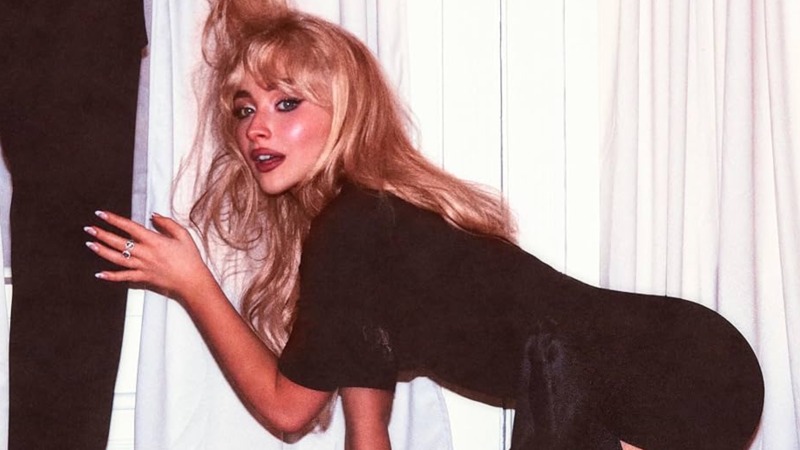
Sabrina Carpenter, the Quakertown-born former Disney Channel kid and niece of Bart Simpson, has been churning out albums for 10 years now, despite what her recent Grammy nomination for Best New Artist may suggest. In fact, her fifth album, Emails I Can’t Send, was a really lovely blend of bedroom pop and Americana that flashed her country roots. Songs like “Fast Times” and “Vicious” reached for sun-dappled sophistication, and abandoned Carpenter’s bubblegum beginnings. That’s when she started working with producer John Ryan and songwriter Amy Allen, both of whom have remained two of her closest collaborators in the three years since. The trio, along with Jack Antonoff, teamed up to make Carpenter’s breakout record Short n’ Sweet last year—a true star-making pop title, jolted by three Top-5 singles (“Espresso,” “Please Please Please,” “Taste”).
Carpenter is funny and gorgeous, and her image is teeming with bombshell charisma and a small-town charm. She also likes to fuck and sing about it. Apparently, you’re only allowed to be the first part on a pop album in 2025. If you’ve been clued into online music discourse at all in the last three months, then you’ve likely already been inundated by the controversy surrounding the cover of Carpenter’s new album, Man’s Best Friend. On it, she’s on her knees and gently caressing the inner thigh of a man whose face we cannot see. What we can see is him dressed like a silhouette, holding some of her hair in his fist. The internet did not like this image, clamoring to accusations of misogyny, sexism, and objectification. Well, you should have seen the cover she wanted to do!
But the truth is, Man’s Best Friend is as brainy as it is raunchy, as clever wordplay is superseded by inspired form. The “man-hating” label Carpenter’s music has been given by its listenership, and the so-called “betrayal” of this album’s cover artwork, says more about the offended than the offender. These songs, especially “We Almost Broke Up Again Last Night,” “House Tour,” and “Sugar Talking,” skate past yearning and plunge deep into pockets of a matter-of-fact, grandiose shagging. You might hear a line like “Gave me his whole heart and I gave him head” and imagine that the substance ends there, but a lot of this music grapples with healing (“When Did You Get Hot?”) and over-indulgence (“Go Go Juice”) in subtle ways. Freak flags fly but only at half-mast, as pleasure bubbles with a touch of “I’m the problem” idling beneath it. On “My Man on Willpower,” Carpenter gets especially candid about a boyfriend’s apathy: “He used to be literally obsessed with me, I’m suddenly the least sought-after girl in the land.”
The album’s double entendres, which Carpenter and Allen’s knack for could require an entire semester of attention just to sift through, argue that arousal is not black-and-white or cut-and-paste. “House Tour” is not about a house (“Yeah, I spent a little fortune on the waxed floor / We can be a little reckless, ‘cause it’s insured”). The disco-ball fabulousness of “Tears” reveals an appetite for good behavior, as Carpenter makes the argument that nice guys don’t finish last, but inside and all over (“I get wet at the thought of you / … / Treating me like you’re supposed to”). The “tears” running down her leg aren’t some weepy consequence. Her self-deprecation can be funny (“It’s your seventh last chance, honey / Get your sorry ass to mine”) but her romantic escapades can be hopelessly common (“Been here a thousand times / Selective memory, though”).
-

-

-

-

-

-

-

-

-

-

-

-

-

-

-

-

-

-

-

-

-

-

-

-

-

-

-

-

-

-

-

-

-

-

-

-

-

-

-

-










